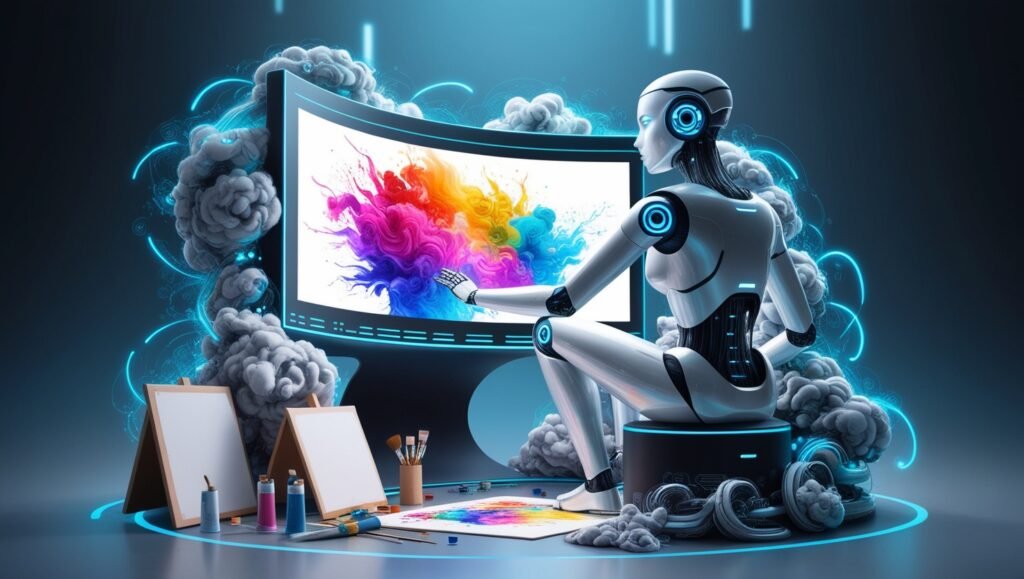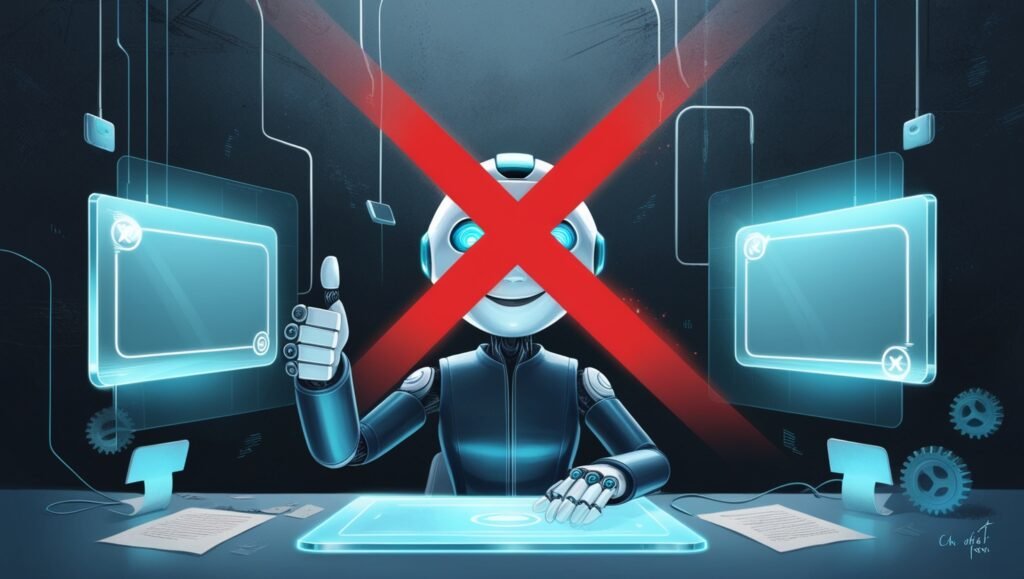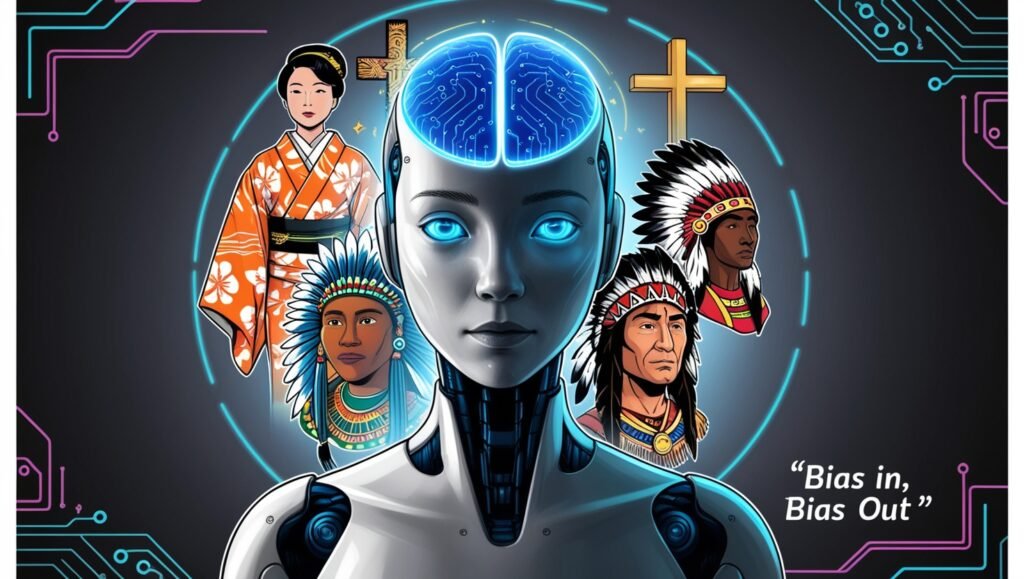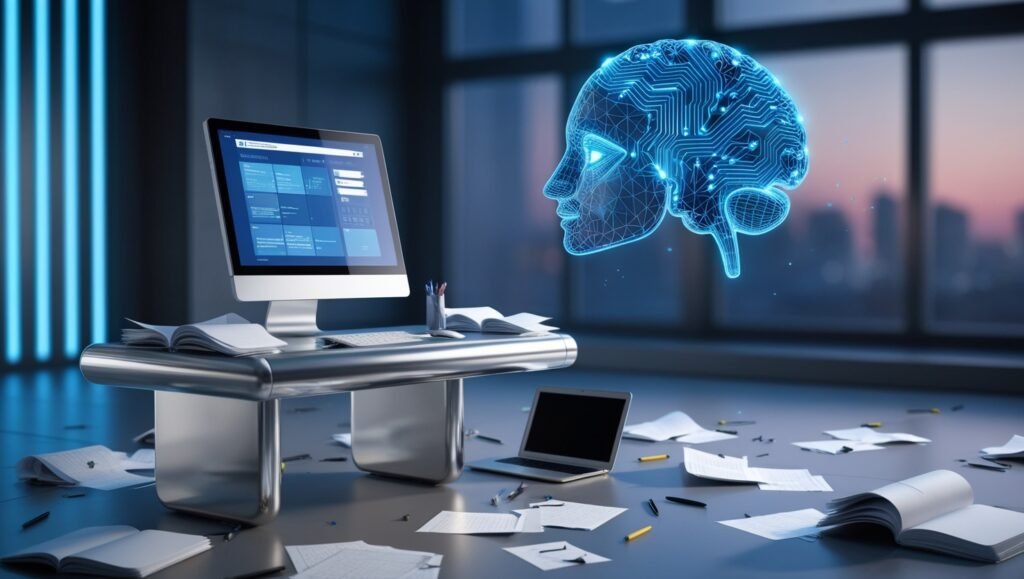
Table of Contents
- 1. AI in Creative Competitions: The Art Controversy
- 2. AI-Powered Loans: Hidden Discrimination in Lending
- 3. ChatGPT’s Confidence Problem: Misinformation as Fact
- 4. Language Barriers: AI’s Struggles with Cultural Contexts
- 5. Overlooked Ethical Issues in AI-Generated Music
- 6. The Zillow Algorithm Crash: Over-Optimism in Real Estate
- 7. Education at Risk: AI-Graded Exams
- 8. AI in Journalism: The CNET Backlash
- Broader Lessons from AI Failures
- Looking Forward: Building Resilient AI Systems
Artificial Intelligence (AI) has undoubtedly transformed our world, solving problems that were once thought insurmountable. From revolutionizing healthcare to enhancing business efficiency, the possibilities seem endless. But what happens when this powerful technology stumbles? As impressive as AI is, it remains far from perfect. AI failures remind us that despite its sophistication, it is still a human creation with limitations, biases, and the potential to cause harm if not handled responsibly. Let’s explore some notable, often-overlooked instances where AI has failed, including recent events, and discuss what we can learn from these missteps.
1. AI in Creative Competitions: The Art Controversy

One of the most controversial AI failures occurred in 2022, when a digital art competition awarded its top prize to an image created using AI software called MidJourney. While technically impressive, the entry sparked outrage among human artists, who argued that the AI merely combined pre-existing data without genuine creativity or effort. The judges, unaware that the artwork was AI-generated, found themselves at the center of a heated ethical debate.
This controversy exposed gaps in understanding how AI interacts with human creativity. Should AI art be considered “original,” or is it simply an amalgamation of prior works? Additionally, it raised questions about how competitions can adapt to the rise of generative AI.
Dr. Ahmed Elgammal, a leading researcher in AI and creativity, stated, “AI-generated art challenges traditional notions of authorship and originality. While it can produce visually stunning results, it lacks the emotional and intentional depth that defines human creativity.”
2. AI-Powered Loans: Hidden Discrimination in Lending

AI-driven systems are increasingly used to determine creditworthiness, but this has not been without issues. For example, a 2021 investigation revealed that certain AI models used in loan approval processes systematically denied applications from minority groups at higher rates. While lenders insisted this was “unintentional,” analysis showed that the algorithms reflected historical biases in banking data, disproportionately affecting marginalized communities.
This case received little mainstream attention compared to flashier AI failures, but its real-world consequences were devastating. Families missed out on opportunities to buy homes or start businesses, perpetuating cycles of economic disparity.
Cathy O’Neil, author of Weapons of Math Destruction, explains, “Bias in AI often mirrors societal inequalities. Unless we address the datasets used, these systems will continue to perpetuate harm under the guise of objectivity.”
3. ChatGPT’s Confidence Problem: Misinformation as Fact

OpenAI’s ChatGPT has been praised for its versatility, but its tendency to confidently produce incorrect information remains a significant issue. For instance, when asked about complex scientific topics, it has occasionally fabricated sources or presented incorrect data with an air of authority. A less-publicized example involved students relying on ChatGPT for academic assignments, only to submit wildly inaccurate work.
This “confidence problem” underscores the challenges of balancing accessibility and reliability in generative AI models. Users often trust AI output too readily, leading to misinformation spreading faster than it can be corrected.
Dr. Emily Bender, a computational linguist, argues, “Large language models like ChatGPT are essentially stochastic parrots. They excel at pattern matching but lack true understanding, making them prone to errors that sound convincing.”
4. Language Barriers: AI’s Struggles with Cultural Contexts

In 2023, an AI-based customer service chatbot for a global brand failed spectacularly when interacting with users from non-Western cultures. The chatbot misunderstood idiomatic expressions and cultural nuances, leading to embarrassing public interactions. For instance, it mistook a common Indian phrase for a complaint and escalated the issue unnecessarily.
Such failures reveal AI’s limitations in adapting to diverse linguistic and cultural contexts, which are vital in a globalized world. These mistakes are rarely highlighted in mainstream discussions but are crucial for companies relying on AI to expand internationally.
Dr. Radhika Nagpal, an AI ethics researcher, noted, “Global AI systems often reflect the biases of their developers, who may lack exposure to cultural diversity. Without localized training, these systems will struggle to serve a truly global audience.”
5. Overlooked Ethical Issues in AI-Generated Music

In 2023, several musicians criticized AI platforms for recreating their unique vocal styles and musical compositions without consent. Unlike visual art, where plagiarism is more recognizable, AI-generated music often mimics an artist’s signature sound so precisely that distinguishing between original and AI-produced tracks becomes challenging.
While less-publicized than controversies in visual art, this phenomenon has sparked debates about intellectual property in the music industry. Who owns an AI-generated song that sounds like Adele but was created without her involvement?
Chris Castle, a music industry lawyer, commented, “AI-generated music pushes the boundaries of copyright law. Artists must advocate for stronger protections to ensure their creative identities aren’t exploited.”
6. The Zillow Algorithm Crash: Over-Optimism in Real Estate

In 2021, Zillow, a major player in real estate, relied heavily on its AI-powered “Zestimate” algorithm to predict home prices. The company even used this system to buy properties, expecting to profit by flipping them. However, the algorithm grossly overestimated property values, leading Zillow to purchase thousands of homes it couldn’t sell at a profit. The debacle cost the company hundreds of millions of dollars and forced it to shut down its home-buying program.
This case, though somewhat overlooked now, serves as a cautionary tale about over-reliance on AI predictions in volatile markets. It highlights the importance of combining AI with human expertise.
Dr. Michael Siegel, an MIT researcher, explained, “Algorithms excel at analyzing past trends but often struggle with dynamic, unpredictable markets. Human intuition remains indispensable in these scenarios.”
7. Education at Risk: AI-Graded Exams

In 2022, an Australian university piloted an AI-based grading system for student essays. While the goal was to provide faster feedback, students quickly noticed inconsistencies. Essays with complex arguments were penalized, while formulaic, less insightful responses scored higher. The AI seemed to prioritize structure over substance, frustrating both students and educators.
This lesser-known failure highlighted AI’s inability to grasp nuance, particularly in creative or critical thinking tasks. It also sparked concerns about the role of AI in shaping educational outcomes.
Professor Noam Chomsky, a linguist and cognitive scientist, remarked, “Education should nurture human creativity and critical thinking, not conform to the rigid frameworks of AI systems.”
8. AI in Journalism: The CNET Backlash

In early 2023, CNET faced backlash after it was revealed that some of its articles were written by AI without proper disclosure. The articles contained factual errors, leading readers to question the publication’s credibility. While automation can help streamline content creation, this incident demonstrated the risks of prioritizing efficiency over accuracy and transparency.
Interestingly, the issue wasn’t just the errors—it was also about trust. Readers felt betrayed by the lack of disclosure, showing how important it is for companies to be upfront about AI use.
Margaret Sullivan, a media critic, stated, “Trust is the cornerstone of journalism. Failing to disclose AI involvement erodes the credibility that publications have spent years building.”
Broader Lessons from AI Failures
AI failures are not merely technical glitches—they’re reflections of systemic issues. By examining these lesser-discussed cases, several key lessons emerge:
- AI Isn’t Culturally Agnostic: Systems must account for regional, linguistic, and cultural diversity to succeed globally.
- Originality Matters: From music to journalism, AI should enhance human creativity, not erode it.
- Transparency Is Key: Users need to know when they’re interacting with AI and how it works to build trust.
- Human Oversight Is Essential: Algorithms need human intuition and expertise to navigate complex, dynamic scenarios.
- Proactive Ethical Standards: Developers must anticipate unintended consequences and bake ethical considerations into their systems from the start.
Looking Forward: Building Resilient AI Systems
AI’s potential to improve lives is immense, but only if it is designed and deployed responsibly. By acknowledging past failures and addressing their root causes, we can create systems that are not only more reliable but also more equitable. Let these examples serve as both a cautionary tale and a source of inspiration for developers, policymakers, and users alike.
The future of AI is unwritten—but with careful stewardship, it can be a story of collaboration, innovation, and accountability.
